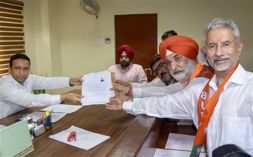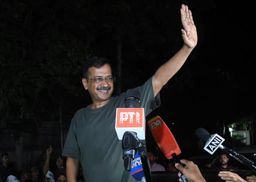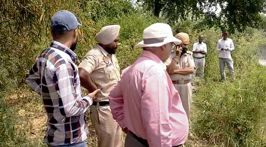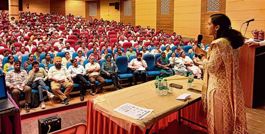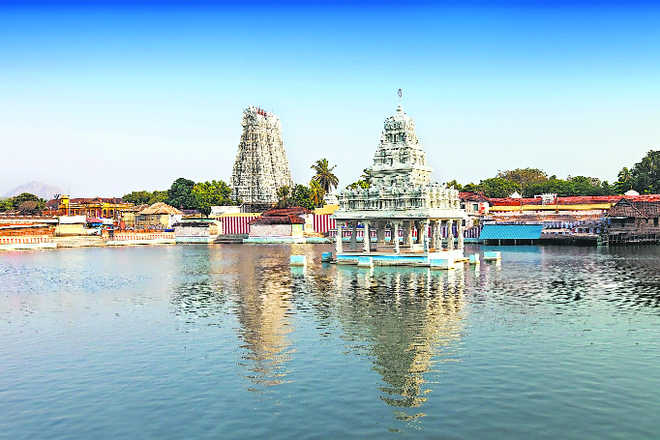
Godly Matters: The Thanumalayan Temple in Suchindram, Kanyakumari, Tamil Nadu. The well-researched book outlines the forces, mainly religious, which helped shape the multifarious aspects of South Indian society
Sukhmani Kaur Gill
Coromandel is a highly refreshing albeit ‘personal’ account of the Indian peninsula to the south of the Narmada. Author Charles Allen’s travel experience, combined with thorough research, outlines the forces, mainly religious, which helped shape the multifarious aspects of South Indian society.
The book’s subtitle, A Personal History of South India, makes it clear at the onset that the author’s work does not necessarily conform to academic correctness. The narration meanders from one phase to another, choosing one dynasty over the other, which seems valid, given the vast geographical and historical palette he attempts to explore.
To preserve the Orientalist movement from sinking into historical oblivion, Allen consistently draws from the works of “good-intentioned imperialists” whose efforts led to the unveiling of India’s past. These include James Princep, William Jones, Robert Caldwell and Alexander Cunningham among others.
The book focuses on the search for the roots of religion — from Vedic foundation to Brahminism and the evolution of various sects; Buddhism and Jainism, in particular.
Most of the research work is related to the cultural legacy of Buddhism and Jainism from times not much recognised today. Allen highlights the surge in the popularity of these religions in South India under different rulers, but also dismisses the claim that religious persecution led to their decline. Instead, he holds celibacy, as practised by Buddhist and Jain monks and loss of royal patronage responsible for their downfall.
The book jolts the readers more than once through reasonable and logical explanation to historical events. The author’s usage of Vedic geography to conclude that Harappans were not Aryans or to infer that the “Punjabi Sarsuti-Ghaggar was not the original Saraswati,” which might actually flow in Afghanistan, can definitely rile Right-wing groups today.
Allen’s take on Tamil renaissance in the chapter, Jains and Sangams and the idea of a lost continent can baffle the reader. But again, he employs reasonable observation to conclude that there was a human settlement located off Kanyakumari, thus lending credence to the subsequent Dravidian movement, which forms the basis of identity politics in the region today.
The book also sheds light on the less-talked about Satvahana kingdom, its vast territories touching the Arabian Sea and the Bay of Bengal, influential kings and queens and the flourishing trade with the Romans, which generated enough means to patronise Buddhism.
The writer’s take on Jagannath is engrossing. It raises difficult questions on its origin, which again might ruffle a few feathers.
Elaborate details of the Chola empire captures the fancy of the reader. The interest is enhanced by the book’s conversational style. The parallels that Allen draws between Chola imperialism and modern-day imperialism come as a surprise. “The Chola empire is something that Indian nationalists tend to overlook when they berate Britain for its imperialism,” he writes.
On the whole, Coromandel weaves an interesting tapestry of events largely untouched before. It tickles the reader to think and reflect on what may have shaped our past instead of blindly following historical propaganda that is in wide circulation today. To put it in words of well-known historian Romila Thapar, “Remember, of course, to be very cynical”.





















